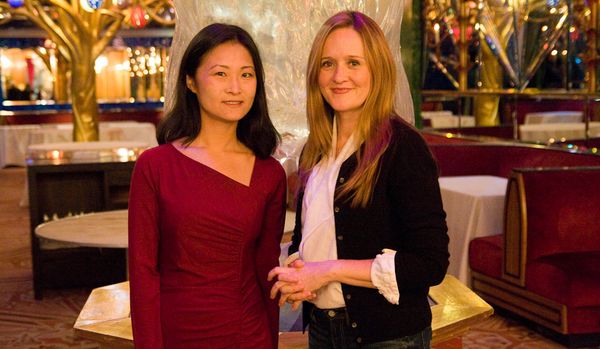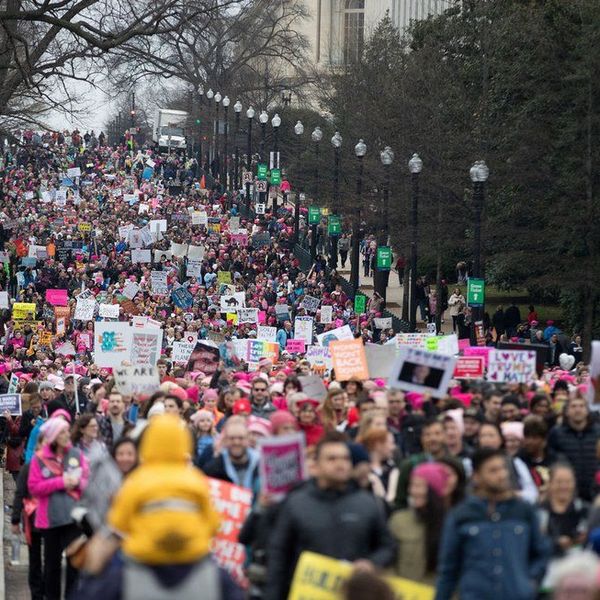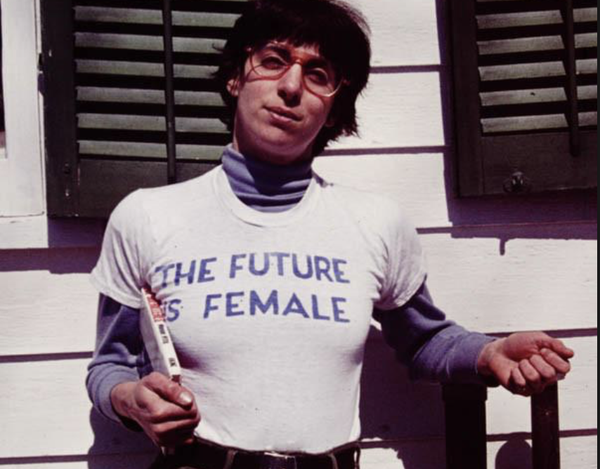"A world where every human life is valued and protected"
On the day following Donald Trump's presidential inauguration, I hopped on one of three Barnard College buses and headed to Washington D.C. with a bunch of amazing people to join the Women's March. And not only did this movement happen in our capital, it took place worldwide.
This weekend, the activism-infused atmosphere in D.C. took on a different form as thousands of people gathered for the annual March For Life. This pro-life movement's mission statement is simply "to provide all Americans with a place to testify to the beauty of life and the dignity of each human person." Its vision is the statement quoted above.
Before continuing, I want to make it perfectly clear that this piece is not intended to force certain beliefs. I'm not going to discuss all the statistics and legislation that we are all probably cognizant of. (If you'd like to learn more, please do take the time to cautiously read up on these policies; it's so important to stay informed.) And in no way do I aim to devalue all the respectful progress that has arisen from "pro-choice" related initiatives. However, what I've noticed a lot in mainstream media (and intend to fill) are gaps in understanding the intentions of those who are "pro-life." I'd like to share what I've come to know as truth, having lived in both mindsets (nevertheless from both bold and gracious communities) in hopes to clarify a few misconceptions.
1. Pro-life extends beyond pro-birth.
There's a common misunderstanding that all those who oppose abortion stop wholeheartedly defending life once the baby is born. Although there's inevitably going to be some bad apples who claim to be pro-life but don't concern themselves with issues that threaten humanity post-childbirth, true advocates for life think / do quite the opposite. This means actively ensuring each and every human being receives respect in all stages of life until death. As Sister Joan Chittister of the Order of Saint Benedict says, "I think in many cases, your morality is deeply lacking if all you want is a child born but not a child fed, not a child educated, not a child housed." Supporting life isn't just being anti-abortion; it's supporting human growth and success every step of the way.
2. Pro-life is pro-woman.
The people who truly defend life do not aim to be a burden to mothers. In fact, the pro-life advocates I know are committed to cherishing and honoring the life of a mother. They, like many feminists including those who are pro-choice, see females and the ability to create or nurture life as beautiful and powerful. It may not be at all obvious, but the Women's March and the March For Life (though having different political agendas) are rooted in the same central goal: to provide protection, support, and care for women. Many defenders of life even recognize and appreciate the sexual health resources and education that Planned Parenthood provides. Real pro-life marchers are genuinely open to extending the love and healing they've experienced to all mothers.
3. Pro-life is not pro-Trump
Repeating for emphasis: pro-life is definitely not pro-Trump. Support of the March for Life, to most, is in no way support of his administration. Yes, VP Mike Pence and other not-too-respectable Republicans have spoken at the march. However, this does not mean that the marchers align their ideology with these political figures. Many don't even associate themselves with a political party, nonetheless the Republican party. Pro-life means voting for life in all categories and circumstances.
I know many pro-life women, especially women of color, who also went out to the Women's March and have continuously spoken out in protest against Trump's stance on immigration, Native American rights, LGBTQ+ rights, and education. They are advocates of access to basic health care, proponents of gun law revisions, opponents to the death penalty, etc. The important thing to remember here is that many people claim to be "pro-life" but aren't truly representative of what it actually means to believe in the protection of life.
So on to the essential question: can someone identify as both a feminist and a pro-life advocate? The answer is yes. However, I think it can only be possible after reevaluating and coming to a deeper understanding of what it means to assume both respective identities (I hope I've shed some light on the latter). After all, now's not the time to be hopelessly divided on our shared visions of justice and dignity of a human person.





















